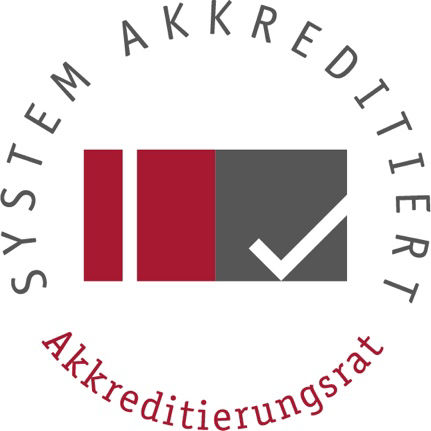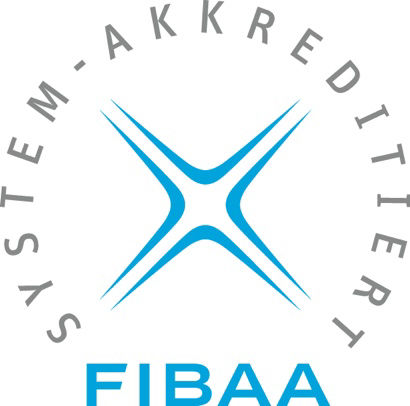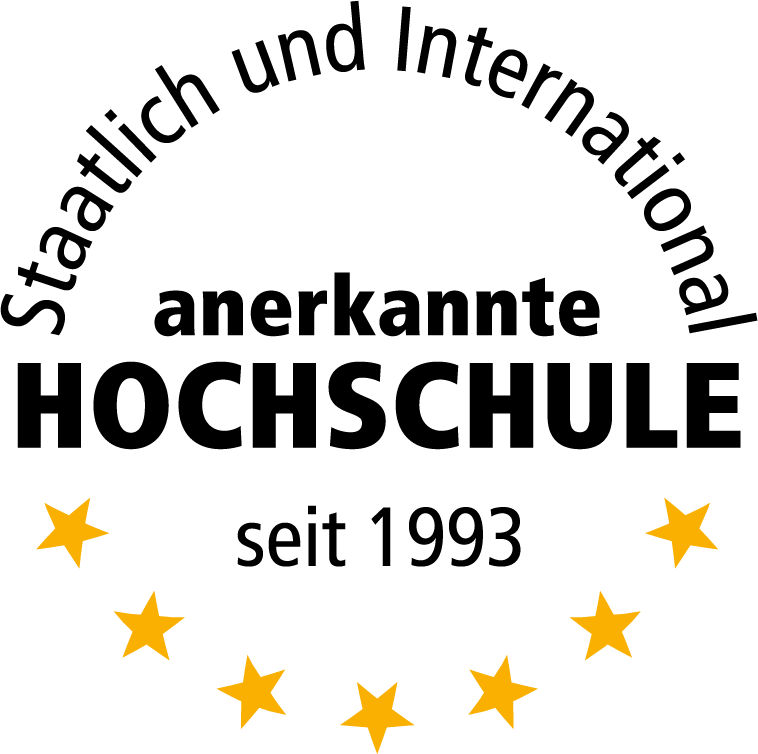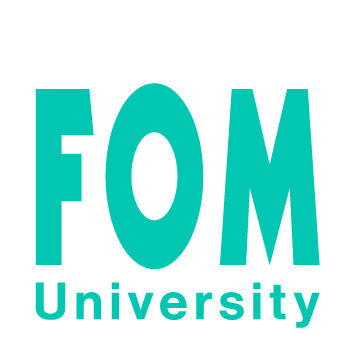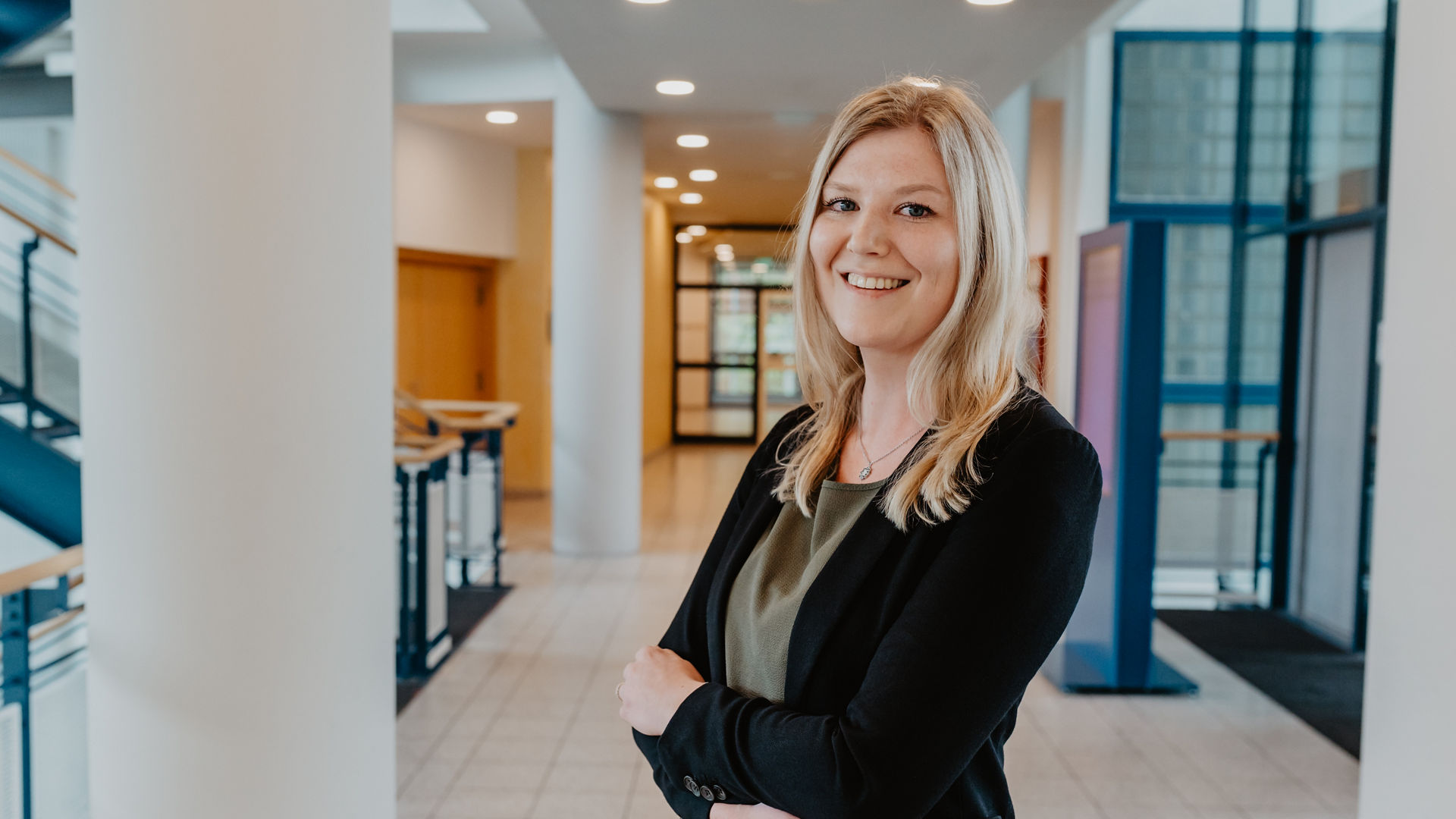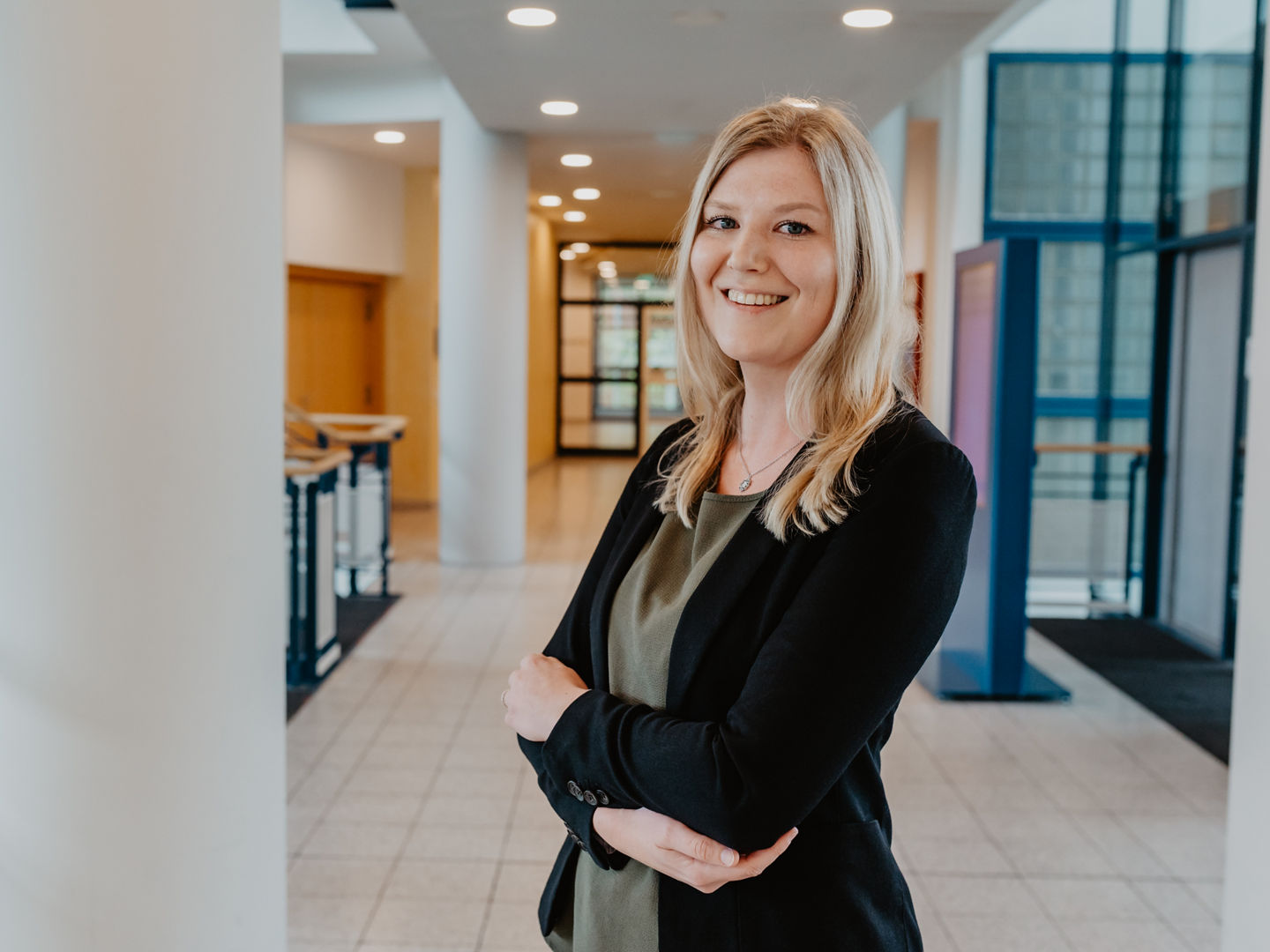Total fees payable in two installments (before the start of studies) or in three installments. The first installment (enrollment fee of €1,580) is payable upon receipt of the Offer Letter to confirm the place. After that, the rest can be paid in one installment (€20,920). Otherwise, students can split the fees into a second and third installment. The second installment must be paid before the start of the program and includes, among other things, the tuition fees for the first two semesters and the examination fees (2nd installment of €12,177). The third installment must be paid before the start of the 3rd semester and consists of the tuition fees of the 3rd and 4th semester (2nd installment à €8,743).
Unfortunately no results for your search
Oh no, somethings seems to have the broke the search results. Please try rephrasing your search term!
Mechanical Engineering & Digital Technologies
Bachelor of Engineering (B.Eng.)

Degree: Bachelor of Engineering (B.Eng.)
Mechanical Engineering & Digital Technologies
Mechanical engineers shape industrial progress by developing systems and machines that enhance our lives. The Bachelor’s program “Mechanical Engineering & Digital Technologies” at FOM University of Applied Sciences responds to global industry demands, combining fundamental engineering with digital technologies in product development and production processes.
Students learn about industrial data management, production process simulation, and digital twins co-development. Graduates gain skills in networked production, mechanical and plant engineering, automotive, chemical, and environmental technologies.
The Bachelor’s program “Mechanical Engineering & Digital Technologies” is taught entirely in English and will be completed with the academic degree Bachelor of Engineering (B.Eng.).
Locations
Duration
Credit Points
Accreditation (Master)
Total costs
25.830,00 euro
including registration fee, tuition fee and examination fee

Mechanical Engineering & Digital Technologies (B.Eng.)
Your career prospects
You can take on the following jobs:
- Mechanical Engineer
- Digital Manufacturing Engineer
- Robotics Engineer
- Technical Consultant
- Aerospace Engineer
Semester Overview
Study program
Engineering Mathematics I (6 CP)
Foundations and introduction to MATLAB/Octave
Sequences and series
Differential calculus
Integral calculus
Linear algebra
Modern Materials and Operating Supplies (6 CP)
Fundamentals of metallic and non-metallic construction materials
Steels
Non-ferrous metals: aluminium, magnesium, titanium (light metals), heavy metals
Plastics (thermoplastics, thermosets, elastomers)
Composite materials and their use in mechanical engineering and transportation
Functional materials: magnetics materials, conductore materials semiconductors
Material testing (destructive, non-destructive)
Sustainability (including recycling) of materials and supplies
Industrial IT Operating Systems and Networks (6 CP)
Operating systems
Process management and memory management
File systems
Networks
Data protection and data security
Industrial Software Development (5 CP)
Programming concepts
Programming paradigms
Languages and tools
Algorithms
Time and Self Management (5 CP)
Time management
Self-optimisation methods (i.e. pareto principle, ABC-Analysis)
Learning checks
Engineering Mathematics II (6 CP)
Fourier series
Linear Algebra II
Derivative
Ordinary differential equations
Technical Mechanics (6 CP)
Basic concepts of statics: forces and their decomposition; force pairs, torsional and bending moments
Equilibrium conditions
Locating the centre of mass
Bending stress
Rigid body dynamics
Laboratory training course (6 CP)
Pendulum swing
Electrical measurements
Temperature measurement
Torque
Practical introduction to control engineering
measuring, monitoring and controlling using smartphones and embedded systems
Metrology (5 CP)
Fundamentals of physics and sensor technology
Measurement chain modelling
Temperature sensors
Kinematic and dynamic measurement
Fluid measurement technology
Sensorsystems
Scientific Working Methods (5 CP)
Research design
Basic formal requirements
Research methods
Project Management (5 CP)
Stakeholder analysis
Risk management
Scheduling and resource planning
Agile project management
Natural Sciences for Engineers (6 CP)
Vibrations and waves
Electromagnetic waves
Elementary quantum physics
Structure of matter
Elementary chemistry
Fundamentals of Construction & Maschine Elements (6 CP)
Structure of technical drawings
Construction basics
Strength, static and dynamic component verification
Clutch, gear and breaks fundamentals
Fluid Mechanics (6 CP)
Basic concepts of fluid mechanics
Hydrostatics
Hydrodynamic foundations of ideal fluids
Pipe flow
Potential flow
Applied Engineering Mathematics (5 CP)
Tensors
Autonomous Systems
Complex functions
Integral transforms
Basic terms in calculus of variations
Digital Transformation (5 CP)
Digital Business & Business Models
Trend analysis
Innovation (Lean Startup, Design Thinking etc.)
Pitching
ESG-Sustainability (5 CP)
History and definition of ESG and sustainability
Dimensions of sustainability
Corporate Social Responsibility
Interculturality and diversity
Industrial Data Engineering (6 CP)
Data in Industry 4.0
Data collection and transfer
Data quality and data security
Foundations of quantitative data analysis
Correlation analysis
Statistical experiment design
Methods and software solutions for machine learning
Electrical Engineering & Microsystem Technology (6 CP)
Direct current technology
Fundamentals of the electromagnetic field
Introduction to semiconductor and microsystems technology
Dynamics & Robotics (6 CP)
Kinematics of mass points
Robot kinematics
Kinetics of mass points
Oscillation
Project: Construction & Computer Aided Design (5 CP)
Coordinate systems
Perspectives
Building components and assembly structure
Product Innovation & Service Engineering (6 CP)
Tasks of innovation and technology management
Innovation strategies
Creativity and problem solution strategies
Role of services in the context of digitalisation
Service quality and management
Process Optimisation & Quality management (6 CP)
Introduction to quality management and its transformation to Quality 4.0
Norms and rules for quality management (QM)
Establishment and planning of a QM system
Risk management / advanced product quality planning methods
Software solutions for quality 4.0
Production Processes & Production Technology (6 CP)
Foundations of production theory and production systems
Role of safety, environmental protection and regulations
Foundations of processes (process engineering, chamical reaction engineering and environmental engineering)
Modes of operation (batch-processing, continous production, joint production)
Industrial manufacturing process in metalworking and plastics industry
Additive manufacturing processes
Sustainability in the manufacturing process
Thermodynamics (6 CP)
Energy, work, heat, temperature
ideal gases and pure substances
real fluids
heat conduction
convection component design
Actuators, Drives & Power Units (5 CP)
Electrical machines
Internal combustion engines
Hydraulics and pneumatics
Overarching aspects (i.e. energy conversion efficiency, fouling)
Smart Factory (6 CP)
Introduction to digitised production
IT systems in production and their significance for the Digital Twin.
Technologies and their application in smart factories (i.e. cloud computing, AI, cellular technology)
Sustainability aspects in the smart factory
Technology implementation challenges and the shift towards smart factories
Digital Automation Technology (6 CP)
Controls (SPS/PLC; IPC)
Digital control engineering
Communication networks
Applications of industrial bus systems and networks
Cyber-physical systems
Project: Certificate Quality Management (5 CP)
Foundations of quality management and certification
Case study structure
Asynchronous group work on selected case studies
Exposé (5 CP)
Formal, methodological and content requirements in academic research and writing
Identifying research problems and developing a research question
Developing and presenting a research plan
Thesis and Colloquium (12 CP)
Subject to change.


Full-time on campus
How to study at FOM
In our Master’s degree programme “Mechanical Engineering & Digital Technologies” you will be expanding your academic knowledge, gaining specialist subject and methodological understanding and further broadening your decision-making and leadership skills. You study full-time on the campus in Essen and you also have the opportunity to establish initial contacts with companies. During this time, you will have experienced, highly qualified professors and lecturers who will also provide you with individual support.
- Prerequisites & registration
- Tuition fees
- Info material
What you need for admission
University entrance qualification
- German university entrance qualification HZB or equivalent;
- University entrance qualification in EU/EEA countries or Switzerland;
- University entrance qualification in non-EU / non-EEA countries (indirect HZB) with successful completion of: FOM entrance examination or TestAS
English language proficiency minimum level B2 or equivalent
English language proficiency equivalents to CEFR Level B2 include
- Duolingo 90-115 points
- TOEIC 785 points
- TOEFL IBT 72-94 points
- TOEFL PBT 543 points
- IELTS 5.0-6.5
3 Steps to FOM University
How to Apply
Register your personal data and educational background in the application form.
Please send the filled out and signed application form as well as the following documents as certified copies via email to incomings@fom.de:
- Authenticated copy of General university entrance qualification certificate
- Curriculum vitae
- Authenticated copy of Bachelor degree certificate (for details check the admission requirements)
- Authenticated copy of Transcript of records Bachelor’s degree
- If applicable: Authenticated copy of Master degree and diploma
- Proof of sufficient English language skills (at least B2 proficiency level – for details check the admission requirements)
- Proof of professional activity for at least 1 year after completion of the bachelor degree (prerequisite)
- Scan of passport
Please always enter your full name as it is mentioned in your passport. If you do not have a last name, please enter "-".
All documents must be in German or English. If your original document is written in another language, you must have your document translated by a certified translator. Please then send a certified copy of the original and the certified translation when applying.
Please send all documents as one PDF and name the file as followed: Last name, first name_Study programme (e.g. Smith, Jane_Big Data and Business Analytics).
Note: Where can I have my documents certified?
- issuing institutions, e.g. schools, universities and language schools,
- the Ministry of Education in your home country
- the German embassies and consulates,
- the cultural department of the embassy of the country from which the certificate originates,
- the authorities and notaries who are authorised to carry out official certification in your home country.
Important: Translators are not allowed to certify documents in the original language.
After the successful admission the originals and authenticated documents as well as the originally signed registration form need to be handed in at the International Office.
Please download the application form below.
- 24_564_FOM_IO_BME_INT_FOM231a_RZ_ia.pdf
- 879 KB
- application/pdf
Studycosts
-
registration fee
1.580,00
euro
The registration fee confirms your enrolment at FOM University and unlocks services which you will need to prepare for the start of the programme as well as the services you will have throughout your degree courses. The fee is non-refundable. -
examination fee
500,00
euro
In case you have to resubmit the final thesis, the examination fee will be charged again. -
total fees
25.830,00
euro
including registration fee, tuition fee and examination fee -
tuition fee
23.750,00
euro
Why study at FOM?
Experienced Faculty
Over 2.000 professors and lecturers with business experience
Cooperations
Over 10,000 collaborations with companies and associations
International
More than 50.000 students from 112 countries study at FOM
